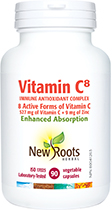Your Eyes—Window to Your Soul and Life
I remember being partially blind for 48 hours after a laser operation about 15 years
ago, when this technique wasn’t developed like it is today. It’s a shock to lose the
use of one sense temporarily or—even worse—permanently. It is during such a
moment that we realize the true importance of our senses. Today, there are nearly
38 million blind people in the world, and more than a billion people who are
far-sighted! A 2017 study published in The Lancet Global Health states that people
with moderate to severe visual impairment increased from 160 million in 1990 to
217 million today, and foresees 588 million in 2050, mainly in Asia and sub-Saharan
Africa. A positive note from the WHO: 80% of visual impairments, particularly among
adults over 50 and children under 15, are preventable or curable.
The Main Causes of Blindness and Visual Impairment Are:
- Incurable refractive errors (myopia, hypermetropia, or astigmatism);
- Inoperable cataract;
- Age-related macular degeneration;
- Glaucoma; and
- Diabetic retinopathy.
“Beauty is in the eyes of the beholder.”
—Oscar Wilde
How Must You Take Care of Your Eyes?
Your eyes deserve care at any age, especially if you have risk factors such as heredity,
diabetes, or certain medications. Therefore, regular medical checkups with your
ophthalmologist are a must. During the day, when in high-reverberation environments
such as the sea, high mountains, or snow, be sure to wear sunglasses that block UVA
and UVB. Additionally, you should wear goggles to protect against exposure to chlorine
at the pool. Ensure you wash your hands well, as we touch our eyes many times
throughout the day. Did you know that we blink nearly 30,000 times a day in order to
lubricate and clean the eyes? Our that modern lifestyles, with the excessive use of
screens, has a strong impact on our eyes. Keep a good distance from screens, and be
sure to adjust the contrast and blue colour (for the same reason, use LEDs in
moderation). At work, take time to rest your eyes by looking away from the screen at
some distant object for a few seconds. Use eye drops to help lubricate and soothe your
eyes if they are dry or irritated. Finish your evenings with a good novel (or better: your
partner) rather than in front of a screen, so that you can sleep like a baby. The cycle of
melatonin, the hormone that keeps you asleep, is disrupted if you have too much
screen exposure late in the evening.
Proper hygiene is fundamental, and there are many recommendations that deal with
our eyes. At the nutritional level, nutrients are real protective treasures for eyes, and it
has been clearly shown that proper nutrition prevents eye disorders and diseases. The
most important factors for your eye health are antioxidants* (trace elements, vitamins,
or polyphenols) which trap infamous free radicals that have invaded our everyday
environment and our plates (the so-called oxidative stress also produces free radicals).
The synergy of antioxidants is crucial, because it allows action on several cell sites at
the same time, without saturation or excess. Their action is then optimized, as opposed
to taking large doses of a single antioxidant, which can itself become oxidizing if the
body is deficient in micronutrients needed for recycling. In other words, 1 + 1 = 3! So,
eat multicoloured foods, especially blue (blueberries, plums, etc.), green (cabbage,
spinach, etc.), red-orange (carrots, tomatoes), and white (garlic).
In addition, choose to supplement with a scientifically balanced antioxidant formula. In
the arsenal of micronutrition, zinc, copper, selenium, or manganese promote anti–free-
radical enzymatic activity. The antioxidant vitamins C, E (the most important in the body),
A, B5, and B6 are well-known, as are polyphenols, including proanthocyanidols, which
partly explain the “French paradox” about the benefits of the reasonable consumption
of wine (and blueberries in the mountains). Its tannins limit vascular hyperpermeability
and are anti-inflammatory, especially with resveratrol (in the grapes’ skin, stalk, and
seeds).
The preventive effects of various antioxidants are the subject of current research and
will make your eyes shine when you hear pretty names such as zeaxanthin, astaxanthin,
lycopene, or lutein. These are carotenoids capable of neutralizing, among other things,
singlet oxygen, the extremely reactive form of oxygen formed under certain conditions
by energy transfer from light radiation to the oxygen molecule. This singlet oxygen is
especially harmful to the eyes and skin.

* Also called reactive oxygen species (ROS) and defined as “a substance that,
when present at low concentrations compared to those of an oxidizable substrate,
significantly delays or prevents oxidation of that substrate.”
 Guillaume Landry, MSc, Naturopath
Guillaume Landry, MSc, Naturopath
A native of the Jura mountains of eastern France, he shares
his passion for the wonders of nature and natural medicine.

 Stores
Stores



